88 have author last names that start with W have author last names that start with W
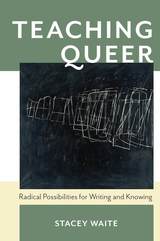
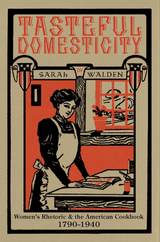
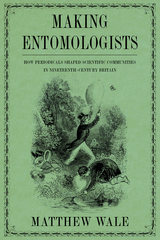
Popular natural history periodicals in the nineteenth century had an incredible democratizing power. By welcoming contributions from correspondents regardless of their background, they posed a significant threat to those who considered themselves to be gatekeepers of elite science, and who in turn used their own periodicals to shape more exclusive communities. Making Entomologists reassesses the landscape of science participation in the nineteenth century, offering a more nuanced analysis of the supposed amateur-professional divide that resonates with the rise of citizen science today. Matthew Wale reveals how an increase in popular natural history periodicals during the nineteenth century was instrumental in shaping not only the life sciences and the field of entomology but also scientific communities that otherwise could not have existed. These publications enabled many actors—from wealthy gentlemen of science to working-class naturalists—to participate more fully within an extended network of fellow practitioners and, crucially, imagine themselves as part of a wider community. Women were also active participants in these groups, although in far smaller numbers than men. Although periodicals of the nineteenth century have received considerable scholarly attention, this study focuses specifically on the journals and magazines devoted to natural history.

“Andrew Carnegie is the only American entrepreneur who could have won distinction as an author, even if he had never seen a steel mill,” writes Joseph Frazier Wall. A skillful and prolific writer, Andrew Carnegie published sixty three articles in major magazines of his time, such as The North American Review, and eight books. Although he is best remembered today for the radical philosophy expressed in the title essay of his book The Gospel of Wealth, his other writings are readable and provocative.
The Andrew Carnegie Reader is the first anthology to bring together in a single volume a representative selection of Carnegie’s writings which show him as a shrewd businessman, celebrated philanthropist, champion of democracy, and eternal optimist. Carnegie’s first letter to the editor at the age of seventeen was the beginning of a lifelong attempt to satisfy an insatiable journalistic desire. Always voluble and candid, Carnegie was as active with his pen as with his tongue.
This intriguing collection covers sixty years of the industrial giant’s life, from his letters to his cousin George Lauder, written in 1853, to the final chapter od his autobiography, completed in 1914. In his own simple, abrupt style, colored with fierce optimism, Carnegie captivated his audience.
Although most of the selections were penned for an audience now long gone, today’s reader will be intrigued by the pertinence and timelessness of Carnegie’s hopes for world peace, his views on labor, and his concern for better race relations in America and their continuing applicability to humankind. A brief essay by the editor introduces each selection.

Selected by David Gates
William Wall is the first international winner of the Drue Heinz Literature Prize.
Jeannie, one of the sisters featured in The Islands, comes to this realization at the age of six or seven, as her father leaves their island home yet again to work on his latest book.
In this collection of interconnected stories, the beautiful and ravaging forces of sea and land collide with the forces of human nature, through isolation and family, love and loss, madness and revelation. The stories follow the lives of two sisters and the people who come and go in their lives, much like the tides. Dominated by the tragic loss of a third sister at a young age, their family spirals out of control. We witness three stages of the sisters’ lives, each taking place on an island—in southwest Ireland, southern England, and the Bay of Naples. Beautifully and sparsely written, the stories deeply evoke landscape and character, and are suffused with a keen eye for detail and metaphor.
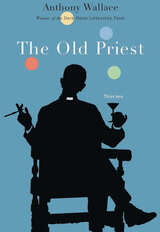
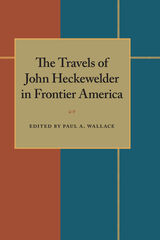
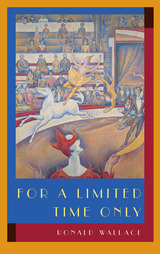
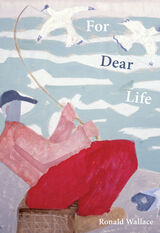
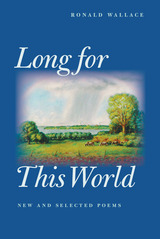
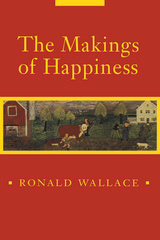
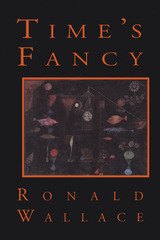
Winner of the 1995 Banta Book Prize for a Wisconsin Author
Ronald Wallace is best known for his wit and good humor, his synthesis of technical skill and strong emotion, his sensory immediacy, his accessibility, and charm. Now in Time's Fancy, his fifth collection, Wallace explores the tragic aspects of life more fully, fashioning a declarative poetry that is darker and deeper, more meditative and complex.

The title sequence, which explores a father’s illness and death, is both elegiac and celebratory, evoking the conflictual bonds in any father-son relationship. In these sonnets, by turns hilarious and heartbreaking, Wallace once again proves himself to be one of our most versatile and affirmative poets.

The Religion of Life examines the interconnections and relationship between Catholicism and eugenics in early twentieth-century Chile. Specifically, it demonstrates that the popularity of eugenic science was not diminished by the influence of Catholicism there. In fact, both eugenics and Catholicism worked together to construct the concept of a unique Chilean race, la raza chilena. A major factor that facilitated this conceptual overlap was a generalized belief among historical actors that male and female gender roles were biologically determined and therefore essential to a functioning society. As the first English-language study of eugenics in Chile, The Religion of Life surveys a wide variety of different materials (periodicals, newspapers, medical theses, and monographs) produced by Catholic and secular intellectuals from the first half of the twentieth century. What emerges from this examination is not only a more complex rendering of the relationship between religion and science but also the development of White supremacist logics in a Latin American context.
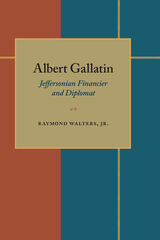

This book presents a comprehensive comparison of economic aid programs by the United States and the Soviet Union to less developed countries. It examines aid to many of the non-Communist nations of Asia, Africa, the Near East, Latin America. Robert S. Walters views aid programs in terms of their objectives, the size and structure of disbursements, and operational and administrative principles. In addition he examines the delicate balance between trade policy and general foreign policy, and the difficulties and results experienced by the U.S. and Soviet Union in their respective programs.
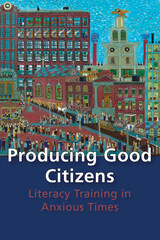
Early on, educators bore the brunt of literacy training, while also being charged with producing the right kind of citizens by imparting civic responsibility and a moral code for the workplace and society. Literacy quickly became the credential to gain legal, economic, and cultural status. In her study, Wan defines three distinct pedagogical spaces for literacy training during the 1910s and 1920s: Americanization and citizenship programs sponsored by the federal government, union-sponsored programs, and first year university writing programs. Wan also demonstrates how each literacy program had its own motivation: the federal government desired productive citizens, unions needed educated members to fight for labor reform, and university educators looked to aid social mobility.
Citing numerous literacy theorists, Wan analyzes the correlation of reading and writing skills to larger currents within American society. She shows how early literacy training coincided with the demand for laborers during the rise of mass manufacturing, while also providing an avenue to economic opportunity for immigrants. This fostered a rhetorical link between citizenship, productivity, and patriotism. Wan supplements her analysis with an examination of citizen training books, labor newspapers, factory manuals, policy documents, public deliberations on citizenship and literacy, and other materials from the period to reveal the goal and rationale behind each program.
Wan relates the enduring bond of literacy and citizenship to current times, by demonstrating the use of literacy to mitigate economic inequality, and its lasting value to a productivity-based society. Today, as in the past, educators continue to serve as an integral part of the literacy training and citizen-making process.
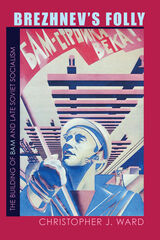
Heralded by Soviet propaganda as the “Path to the Future,” the Baikal-Amur Mainline Railway (BAM) represented the hopes and dreams of Brezhnev and the Communist Party elite of the late Soviet era. Begun in 1974, and spanning approximately 2,000 miles after twenty-nine years of halting construction, the BAM project was intended to showcase the national unity, determination, skill, technology, and industrial might that Soviet socialism claimed to embody. More pragmatically, the Soviet leadership envisioned the BAM railway as a trade route to the Pacific, where markets for Soviet timber and petroleum would open up, and as an engine for the development of Siberia.
Despite these aspirations and the massive commitment of economic resources on its behalf, BAM proved to be a boondoggle-a symbol of late communism's dysfunctionality-and a cruel joke to many ordinary Soviet citizens. In reality, BAM was woefully bereft of quality materials and construction, and victimized by poor planning and an inferior workforce. Today, the railway is fully complete, but remains a symbol of the profligate spending and inefficiency that characterized the Brezhnev years.
In Brezhnev's Folly, Christopher J. Ward provides a groundbreaking social history of the BAM railway project. He examines the recruitment of hundreds of thousands of workers from the diverse republics of the USSR and other socialist countries, and his extensive archival research and interviews with numerous project workers provide an inside look at the daily life of the BAM workforce. We see firsthand the disorganization, empty promises, dire living and working conditions, environmental damage, and acts of crime, segregation, and discrimination that constituted daily life during the project's construction. Thus, perhaps, we also see the final irony of BAM: that the most lasting legacy of this misguided effort to build Soviet socialism is to shed historical light on the profound ills afflicting a society in terminal decline.

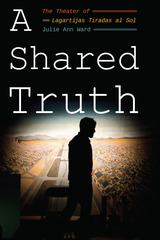
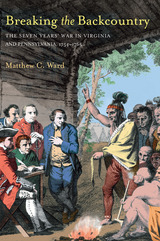
Previous wars in North America had been fought largely on the New England and New York frontiers. But on May 28, 1754, when a young George Washington commanded the first shot fired in western Pennsylvania, fighting spread for the first time to Virginia and Pennsylvania. Ward's original research reveals that on the eve of the Seven Years' War the communities of these colonies were isolated, economically weak, and culturally diverse. He shows in riveting detail how, despite the British empire's triumph, the war brought social chaos, sickness, hunger, punishment, and violence, to the backcountry, much of it at the hands of Indian warriors.
Ward's fresh analysis reveals that Indian raids were not random skirmishes, but part of an organized strategy that included psychological warfare designed to make settlers flee Indian territories. It was the awesome effectiveness of this “guerilla” warfare, Ward argues, that led to the most enduring legacies of the war: Indian-hating and an armed population of colonial settlers, distrustful of the British empire that couldn't protect them. Understanding the horrors of the Seven Years' War as experienced in the backwoods thus provides unique insights into the origins of the American republic.
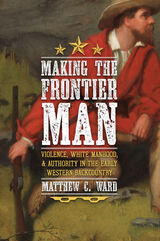
Contextualizes the Development of Early American Violence and Gun Culture
For western colonists in the early American backcountry, disputes often ended in bloodshed and death. Making the Frontier Man examines early life and the origins of lawless behavior in Pennsylvania, Virginia, Kentucky, and Ohio from 1750 to 1815. It provides a key to understanding why the trans-Appalachian West was prone to violent struggles, especially between white men. Traumatic experiences of the Revolution and the Forty Years War legitimized killing as a means of self-defense—of property, reputation, and rights—transferring power from the county courts to the ordinary citizen. Backcountry men waged war against American Indians in state-sponsored militias as they worked to establish farms and seize property in the West. And white neighbors declared war on each other, often taking extreme measures to resolve petty disputes that ended with infamous family feuds.
Making the Frontier Man focuses on these experiences of western expansion and how they influenced American culture and society, specifically the nature of western manhood, which radically transformed in the North American environment. In search of independence and improvement, the new American man was also destitute, frustrated by the economic and political power of his elite counterparts, and undermined by failure. He was aggressive, misogynistic, racist, and violent, and looked to reclaim his dominance and masculinity by any means necessary.

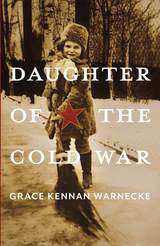
Born in Latvia, Grace lived in seven countries and spoke five languages before the age of eleven. As a child, she witnessed Hitler’s march into Prague, attended a Soviet school during World War II, and sailed the seas with her father. In a multi-faceted career, she worked as a professional photographer, television producer, and book editor and critic. Eventually, like her father, she became a Russian specialist, but of a very different kind. She accompanied Ted Kennedy and his family to Russia, escorted Joan Baez to Moscow to meet with dissident Andrei Sakharov, and hosted Josef Stalin’s daughter on the family farm after Svetlana defected to the United States. While running her own consulting company in Russia, she witnessed the breakup of the Soviet Union, and later became director of a women’s economic empowerment project in a newly independent Ukraine.
Daughter of the Cold War is a tale of all these adventures and so much more. This compelling and evocative memoir allows readers to follow Grace's amazing path through life – a whirlwind journey of survival, risk, and self-discovery through a kaleidoscope of many countries, historic events, and fascinating people.
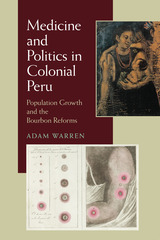
By the end of the eighteenth century, Peru had witnessed the decline of its once-thriving silver industry, and it had barely begun to recover from massive population losses due to smallpox and other diseases. At the time, it was widely believed that economic salvation was contingent upon increasing the labor force and maintaining as many healthy workers as possible. In Medicine and Politics in Colonial Peru,Adam Warrenpresents a groundbreaking study of the primacy placed on medical care to generate population growth during this era.
The Bourbon reforms of the eighteenth century shaped many of the political, economic, and social interests of Spain and its colonies. In Peru, local elites saw the reforms as an opportunity to positively transform society and its conceptions of medicine and medical institutions in the name of the Crown. Creole physicians in particular, took advantage of Bourbon reforms to wrest control of medical treatment away from the Catholic Church, establish their own medical expertise, and create a new, secular medical culture. They asserted their new influence by treating smallpox and leprosy, by reforming medical education, and by introducing hygienic routines into local funeral rites, among other practices.
Later, during the early years of independence, government officials began to usurp the power of physicians and shifted control of medical care back to the church. Creole doctors, without the support of the empire, lost much of their influence, and medical reforms ground to a halt. As Warren’s study reveals, despite falling in and out of political favor, Bourbon reforms and creole physicians were instrumental to the founding of modern medicine in Peru, and their influence can still be felt today.
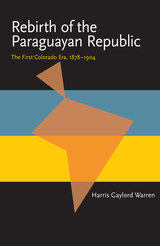
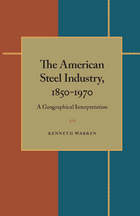
In major discussions of the east coast, Pittsburgh, the Ohio Valley, the Great Lakes, the South and the West, Warren analyzes the location and relocation of steel plants over 120 years. He explains the influence on location of a variety of factors: The accessibility of resources, the cost of transportation, the existence of specialized markets, and the availability of entrepreneurial skills, capital, and labor. He also evaluates the role of management in the development of the industry, through an analysis of individual companies, including Bethlehem, Carnegie, United States Steel, Kaiser, Inland, Jones and Laughlin, and Youngstown Sheet and Tube.
Warren examines the influence exerted on the industry by complex technological changes and weighs their significance against market forces and the supply of natural resources. In the production process alone, the industry changed from pig iron to steel; from charcoal to anthracite; to bituminous coking coal; and from the widespread use of low-grade ore from the eastern United States, to the high quality but localized deposits of the Upper Great Lakes, to imported ores.
Unlike other industrialized nations, the United States has undergone major geographical shifts in steel consumption since the 1850s. As the American population moved south and west into new territory, steel followed. Warren concludes that these radical alterations in the distribution and demand were the decisive force in the location of steel production.
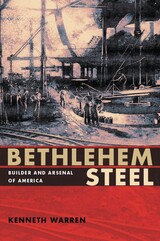
In Bethlehem Steel, Kenneth Warren presents an original and compelling history of a leading American company, examining the numerous factors contributing to the growth of this titan and those that eventually felled it—along with many of its competitors in the U.S. steel industry.
Warren considers the investment failures, indecision and slowness to abandon or restructure outdated “integrated” plants plaguing what had become an insular, inward-looking management group. Meanwhile competition increased from more economical “mini mills” at home and from new, technologically superior plants overseas, which drove world prices down, causing huge flows of imported steel into the United States.
Bethlehem Steel provides a fascinating case study in the transformation of a major industry from one of American dominance to one where America struggled to survive.
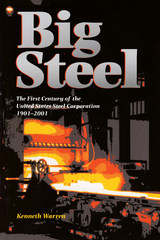
At its formation in 1901, the United States Steel Corporation was the earth’s biggest industrial corporation, a wonder of the manufacturing world. Immediately it produced two thirds of America’s raw steel and thirty percent of the steel made worldwide. The behemoth company would go on to support the manufacturing superstructure of practically every other industry in America. It would create and sustain the economies of many industrial communities, especially Pittsburgh, employing more than a million people over the course of the century.
A hundred years later, the U.S. Steel Group of USX makes scarcely ten percent of the steel in the United States and just over one and a half percent of global output. Far from the biggest, the company is now considered the most efficient steel producer in the world. What happened between then and now, and why, is the subject of Big Steel, the first comprehensive history of the company at the center of America’s twentieth-century industrial life.
Granted privileged and unprecedented access to the U.S. Steel archives, Kenneth Warren has sifted through a long, complex business history to tell a compelling story. Its preeminent size was supposed to confer many advantages to U.S. Steel—economies of scale, monopolies of talent, etc. Yet in practice, many of those advantages proved illusory. Warren shows how, even in its early years, the company was out-maneuvered by smaller competitors and how, over the century, U.S. Steel’s share of the industry, by every measure, steadily declined.
Warren’s subtle analysis of years of internal decision making reveals that the company’s size and clumsy hierarchical structure made it uniquely difficult to direct and manage. He profiles the chairmen who grappled with this “lumbering giant,” paying particular attention to those who long ago created its enduring corporate culture—Charles M. Schwab, Elbert H. Gary, and Myron C. Taylor.
Warren points to the way U.S. Steel’s dominating size exposed it to public scrutiny and government oversight—a cautionary force. He analyzes the ways that labor relations affected company management and strategy. And he demonstrates how U.S. Steel suffered gradually, steadily, from its paradoxical ability to make high profits while failing to keep pace with the best practices. Only after the drastic pruning late in the century—when U.S. Steel reduced its capacity by two-thirds—did the company become a world leader in steel-making efficiency, rather than merely in size.
These lessons, drawn from the history of an extraordinary company, will enrich the scholarship of industry and inform the practice of business in the twenty-first century.
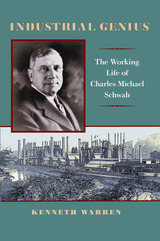
Charles Schwab was known to his employees, business associates, and competitors as a congenial and charismatic person-a 'born salesman.' Yet Schwab was much more than a salesman-he was a captain of industry, a man who streamlined and economized the production of steel and ran the largest steelmaking conglomerate in the world. A self-made man, he became one of the wealthiest Americans during the Gilded Age, only to die penniless in 1939.
Schwab began his career as a stake driver at Andrew Carnegie's Edgar Thomson steel works in Pittsburgh at the age of seventeen. By thirty-five, he was president of Carnegie Steel. In 1901, he helped form the U.S. Steel Corporation, a company that produced well over half the nation's iron and steel. In 1904, Schwab left U.S. Steel to head Bethlehem Steel, which after twelve years under his leadership, became the second-largest steel producer in America. President Woodrow Wilson called on Schwab to head the Emergency Fleet Corporation to produce merchant ships for the transport of troops and materials abroad during World War I.
Kenneth Warren presents a compelling biography that chronicles the startling success of Schwab's business career, his leadership abilities, and his drive to advance steel-making technology and operations. Through extensive research and use of previously unpublished archival documentation, Warren offers a new perspective on the life of a monumental figure--a true visionary--in the industrial history of America.
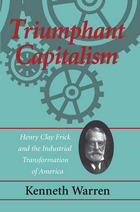

The southwestern Pennsylvania town of Connellsville lay in the middle of a massive reserve of high quality coal. Connellsville coal was so soft and easily worked that one man and a boy could cut and load ten tons of it in ten hours.
This region became a major source of coke, a vital material in industrial processes, above all in steel manufacture, producing forty-seven percent of America`s supply in 1913. But by the 1920s, what had seemed to be a gold mine was turning into a devastating economic, environmental and social loss.
In Wealth, Waste and Alienation, Kenneth Warren draws from primary source material, including the minutes and letters of the Carnegie Steel Company, the United States Steel Corporation, and the archives of Henry Clay Frick, to explain the birth, phenomenal growth, decline and death of the Connellsville coke industry. Its rich natural resources produced wealth for individuals, companies, and some communities, but as Warren shows, there was also social alienation, waste, and devastation of the natural environment. The complicated structure of enterprise, capital, and labor which made this region flourish unwound almost as quickly as it arose, creating repercussions that are still reverberating in what’s left of Connellsville today, a kind of postindustrial rural shell of its former productive glory.


The literature of bureaucratic theory is rife with contradictions and mysteries. Bureaucrats, Politics, and the Environment attempts to clarify some of these problems.
The authors surveyed the workers at two agencies: enforcement personnel from the U.S. Environmental Protection Agency, and employees of the New Mexico Environment Department. By examining what they think about politics, the environment, their budgets, and the other institutions and agencies with which they interact, this work puts a face on the bureaucracy and provides an explanation for its actions.
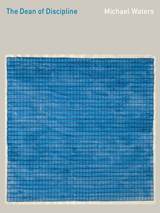
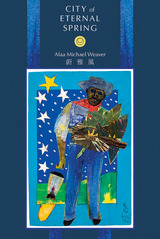
This is the final book in the Plum Flower Trilogy by Afaa Michael Weaver, published by the University of Pittsburgh Press. The two earlier books, The Plum Flower Dance: Poems 1985 to 2005 and The Government of Nature, reveal similar themes that address the author’s personal experience with childhood abuse through the context of Daoist renderings of nature as a metaphor for the human body, with an eye to recovery and forgiveness in a very eclectic spiritual life. City of Eternal Spring chronicles Weaver’s travels abroad in Taiwan and China, as well as showing the limits of cultural influence.

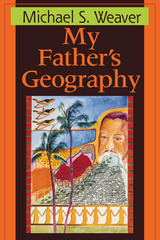

Winner of the 2008 Paterson Award for Literary Excellence
"Weaver has crafted a virtual planet in this book with plenty of alternate geographies for readers of all flavors and stripes. Marvelous. Huge. Prodigious.”
—North American Review
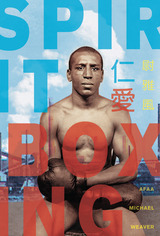
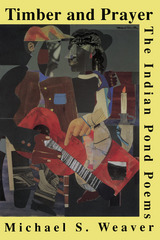
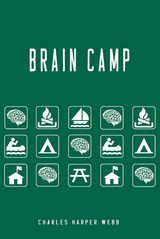


Webb is celebrated for his use of humor; yet even his funniest poems rise, as the best humor must, from serious concerns. Powered by an uncompromising but compassionate intelligence and an abiding wonder at the beautiful strangeness of the world, Sidebend World explores with clarity and vividness a wide range of emotions—love to hate, tenderness to brutality; yet, above all, Webb is a poet of praise. Metaphors of startling aptness and originality, a distinctive voice at once provocative and endearing, high musicality, propulsive energy, wild imaginative leaps, as well as mastery of diction from lyricism to street-speak, create a reading experience of the first order. These poems go down easy, but pack a wallop. As Robert Frost said poetry should do, Sidebend World "begins in delight and ends in wisdom."
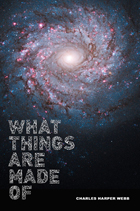
Charles Harper Webb is celebrated for his use of humor; yet even his funniest poems rise, as the best comedy must, out of deep human drives, sorrows, and needs. Powerful immersions in what it means to be human, these poems explore the spectrum of emotions from love to hate, tenderness to brutality. They can be withering and vulnerable in the same breath. Models of clarity and vividness, they are mysterious when they need to be, ranging from lyric to narrative, from realism to wild surreal flights, powered by a fierce, compassionate intelligence. Metaphors of startling aptness and originality, a voice at once endearing and provocative, high musicality, propulsive energy, wild imaginative leaps, as well as mastery of diction from lyricism to street-speak, create a reading experience of the first order. Uniformly fun to read, these poems go down easy, but pack a wallop. As Robert Frost said poetry should do, What Things Are Made Of "begins in delight and ends in wisdom."
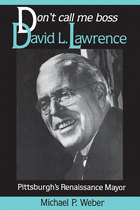
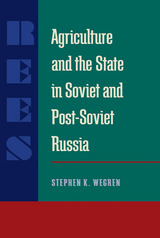
Specifically, as a measure of state intervention, Wegren analyzes how the state has influenced urban-rural relations, rural-rural relations, and the nonstate (private) agricultural sector. Several dilemmas arose that have complicated successful agrarian reform as a result of the nature of state interventions, how reform policies were defined, and the incentives rhar arose from state-sponsored policies. During contemporary Russian agrarian reform, urban-rural differences have widened, marked by a deterioration in rural standards of living and increased alienation of rural political groups from urban alliances. At the same time, within the rural sector, reform failed to reverse rural egalitarianism. In addition, the nature of state interventions has undermined attempts to create a vibrant, productive private rural sector based on private farming.
Wegren’s research is based upon extensive field work, interviews, archival documents, and published and unpublished source material conducted over a six-year period, and he demonstrates the link between agrarian reform and the success of overall reform in Russia. This learned and often controversial volume will interest political scientists, policy makers, and scholars and students of contemporary Russia.
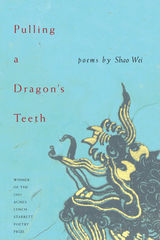
Shuttling between her childhood in a small mountain city on the shores of the Yangtze River (soon to be flooded by the Three Gorges Dam Project) and adulthood in Manhattan, Shao Weicaptures the pains and joys of tradition and displacement familiar to any immigrant. Blending fairy tales, New York images, family stories, and the universal rites of passage associated with growing up, she paints a vibrant canvas of passion and imagination.
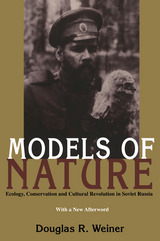
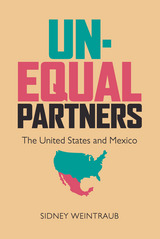
In Unequal Partners, Sidney Weintraubexamines the current relationship of Mexico and the United States as one of sustained dependence and dominance. The chapters examine the consequences of this imbalance in six major policy areas: trade; investment and finance; narcotics; energy; migration; and the border. The book begins in 1954 when the Mexican “growth miracle” was at its apex, and proceeds to the present. Special attention is paid to the post-1982 debt crisis era, when Mexico began a more outward-looking trade policy.
As this study reveals, Mexico has often been its own worst enemy in foreign relations. Over the past thirty years, the country has been plagued by debt, currency fluctuations, tax collection problems, political corruption, and state-controlled business monopolies that block foreign investment and importation. These factors have created an environment of instability, damaged outside perceptions, and weakened Mexico’s bargaining position.
Weintraub considers future policy changes that would help Mexico to level the playing field. Improving the education system, he argues, will benefit nearly every other activity and institution, and opening the oil market to private investment and technology will help develop deep-water drilling and revitalize this significant export commodity. In foreign relations, Mexico must be assertive—as it has been in easing U.S. restrictions on goods traded through NAFTA, and demanding U.S. aid to fight drug cartels—not passive, as it currently is on U.S. anti-immigration policy and the proposed border wall. Perhaps most importantly, the study points to the deeper development of policies that are proactive and outward looking.

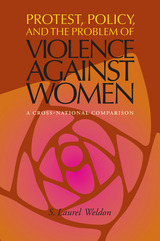
Violence against women is one of the most insidious social ills facing the world today. Yet governmental response is inconsistent, ranging from dismissal to aggressive implementation of policies and programs to combat the problem. In her comparative study of thirty-six democratic governments, Laurel Weldon examines the root causes and consequences of the differences in public policy from Northern Europe to Latin America.
She reveals that factors that often influence the development of social policies do not determine policies on violence against women. Neither economic level, religion, region, nor the number of women in government determine governmental responsiveness to this problem. Weldon demonstrates, for example, that Nordic governments take no more action to combat violence against women than Latin American governments, even though the Swedish welfare state is often considered a leader in social policy, particularly with regard to women’s issues.
Instead, the presence of independently organized, active women’s movements plays a greater role in placing violence against women on the public agenda. The breadth and scope of governmental response is greatly enhanced by the presence of an office dedicated to promoting women’s status.
Weldon closes with practical lessons and insights to improve government action on violence against women and other important issues of social justice and democracy.
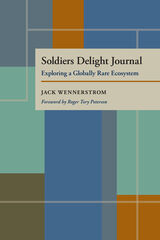
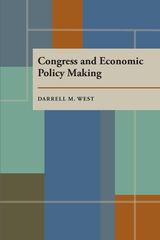
Economic policymaking has perpetually been one of the central dilemmas facing Congress, leading to huge budget deficits and disagreements among legislators about spending priorities and tax policies.
This book examines congressional decision making on economic policy during the Reagan administration. It looks at legislative actions on Reaganomics, tax reform, and the politics of deficit reduction, and shows the importance of looking not just at the consequences of these decisions but also at the legislative processes that led to them.
Using an “activist-based” approach and previously unexamined data, Darrell West shows that district activists, often more conservative than the public at large, exerted a disproportionate and misleading effect on congressional voting. When this support eventually proved unstable, a more skeptical Congress began to eventually back away from the president's policies. This move had serious consequences for deficit reduction and policy initiation, and also influenced the final shape of the tax reform package adopted in 1986.
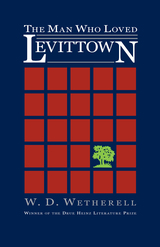
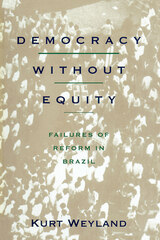
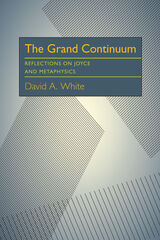
The assumptions that literary criticism and philosophy are closely linked—and that both disciplines can learn much from each other—lead David White to examine key passages in James Joyce’s novels both as a philosopher and as literary critic. In so doing, he develops a thesis that Joyce’s attempt to capture the mysterious process whereby perception and consciousness are translated into language entails a fundamental challenge to everyday notions of reality. Joyce’s stylistic brilliance and virtuosity, his destruction of normal syntax and meaning, “shock one into a new reality.” In the book’s final section, White examines the subtle relation between literary language and human consciousness and traces parallels between Joyce’s stylistic experimentation and Wittgenstein’s and Husserl’s ideas about language.
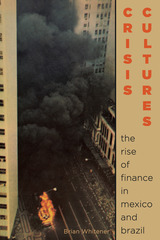
Drawing on a mix of political, economic, literary, and filmic texts, Crisis Cultures challenges current cultural histories of the neoliberal period by arguing that financialization, and not just neoliberalism, has been at the center of the dramatic transformations in Latin American societies in the last thirty years. Starting from political economic figures such as crisis, hyperinflation, credit, and circulation and exemplary cultural texts, Whitener traces the interactions between culture, finance, surplus populations, and racialized state violence after 1982 in Mexico and Brazil. Crisis Cultures makes sense of the emergence of new forms of exploitation and terrifying police and militarized violence by tracking the cultural and discursive forms, including real abstraction and the favela and immaterial cadavers and voided collectivities, that have emerged in the complicated aftermath of the long downturn and global turn to finance.


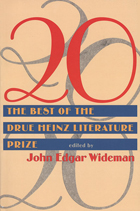
20 represents the best of the best—one story from each of the prize-winning volumes. Chosen by acclaimed author John Edgar Wideman, the selections cover a broad range of inventive and original characters, settings, and emotions, charting the evolution of the short story over the past two decades. One of the most prestigious awards of its kind, the Drue Heinz Literature Prize has helped launch the careers of a score of previously "undiscovered" writers, many of whom have gone on to great critical success.
Past Winners of the Drue Heinz Literature Prize: David Bosworth, Robley Wilson, Jonathan Penner, Randall Silvis, W. D. Wetherell, Rick DeMarinis, Ellen Hunnicutt, Reginald McKnight, Maya Sonenberg, Rick Hillis, Elizabeth Graver, Jane McCafferty, Stewart O’Nan, Jennifer Cornell, Geoffrey Becker, Edith Pearlman, Katherine Vaz, Barbara Croft, Lucy Honig, Adria Bernardi.
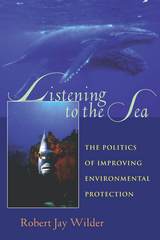

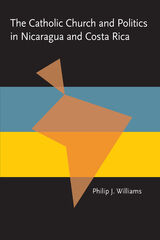

With the resignation of General Renee Emilio Ponce in March 1993, the Salvadorian army’s sixty-year domination of El Salvador came to an end. The country’s January 1992 peace accords stripped the military of the power it once enjoyed, placing many areas under civilian rule. Establishing civilian control during the transition to democracy was no easy task, especially for a country that had never experienced even a brief period of democracy in its history.
Phillip J. Williams and Knut Walter argue that prolonged military rule produced powerful obstacles that limited the possibilities for demilitarization in the wake of the peace accords. The failure of the accords to address several key aspects of the military’s political power had important implications for the democratic transition and for future civil-military relations.
Drawing on an impressive array of primary source materials and interviews, this book will be valuable to students, scholars, and policy makers concerned with civil-military relations, democratic transitions, and the peace process in Central America.


The essays in this volume discuss racism and sexism as they affect mental health. In particular, they focus on training, diagnosis, treatment, and research, emphasizing the power relationships between individuals and groups that cause unequal access to mental health care. They offer perspectives on issues and their distinct effects on mental health: interracial adoptions, teenage motherhood, gender bias in mental health diagnosis and therapy, prisons used as substitutes for hospitals, homeless families, and increasing violence- in the home, on college campuses, and in the streets.

Winner of the Cultural Studies in English Prize, 2012
This book explores the role of vision and the culture of observation in Victorian and modernist ways of seeing. Willis charts the characterization of vision through four organizing principles—small, large, past and future—to survey Victorian conceptions of what vision was. He then explores how this Victorian vision influenced twentieth-century ways of seeing, when anxieties over visual "truth" became entwined with modernist rejections of objectivity.

Famous as an actor with the King’s Company in London during the Restoration, Cardell Goodman epitomized one of the most colorful ages in English history.
Goodman was admitted to St. John’s College, Cambridge at age 13, and, upon graduation, became an actor in the King’s Company. To supplement his meager acting income, he took up highway robbery and was captured then pardoned by King Charles. About 1684, he became the lover of Barbara, Duchess of Cleveland, former mistress of King Charles, and spent the next ten years living in luxury as her Master of the Horse, occasionally accepting acting roles. In 1696 he became entangled in the Jacobite conspiracy and fled to France. He returned to a remote part of England after the Peace of Ryswick in 1697, and spent the last years of his turbulent, exciting, dangerous life in genteel poverty.
John Harold Wilson tells Goodman’s remarkable life story with documentation, grace, and wit, using it to illustrate the violence, intrigue, lawlessness, moral laxity, and brilliance of the era’s revolt against Puritan sobriety and dullness.
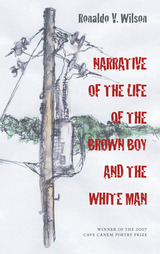
Selected by Claudia Rankine
Prose poems that profile the interrelationship of the two central characters, looking deeply into their psyches and thoughts of race, class, and identity.
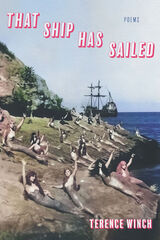
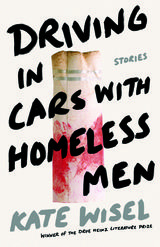
Finalist, 2019 Foreword Indies Award
Driving in Cars with Homeless Men is a love letter to women moving through violence. These linked stories are set in the streets and the bars, the old homes, the tiny apartments, and the landscape of a working-class Boston. Serena, Frankie, Raffa, and Nat collide and break apart like pool balls to come back together in an imagined post-divorce future. Through the gritty, unraveling truths of their lives, they find themselves in the bed of an overdosed lover, through the panting tongue of a rescue dog who is equally as dislanguaged as his owner, in the studio apartment of a compulsive liar, sitting backward but going forward in the galley of an airplane, in relationships that are at once playgrounds and cages. Homeless Men is the collective story of women whose lives careen back into the past, to the places where pain lurks and haunts. With riotous energy and rage, they run towards the future in the hopes of untangling themselves from failure to succeed and fail again.
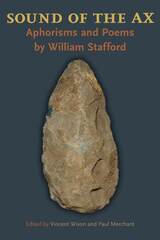
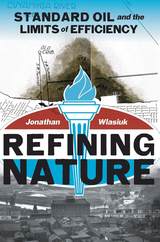
Local governments, guided by a desire to favor the interests of business, deployed elaborate engineering solutions to tackle petroleum pollution at taxpayer expense rather than heed public calls to abate waste streams at their source. Only when refinery pollutants threatened the health of the Great Lakes in the twentieth century did the federal government respond to a nascent environmental movement. Organized around the four classical elements at the core of Standard Oil’s success (earth, air, fire, and water), Refining Nature provides an ecological context for the rise of one of the most important corporations in American history.
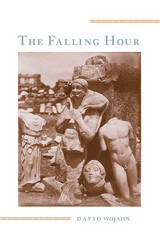
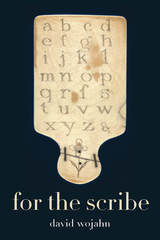
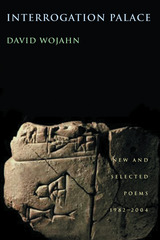
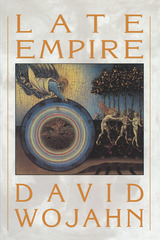

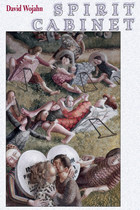
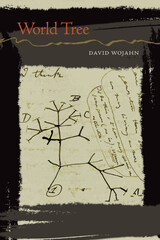
World Tree is in many respects, David Wojahn’s most ambitious collection to date; especially notable is a 25-poem sequence of ekphrastic poems, “Ochre,” which is accompanied by a haunting series of drawings and photographs of Neolithic Art and anonymous turn of the last century snapshots.
Wojahn continues to explore the themes and approaches which he is known for, among them the junctures between the personal and political, a giddy mixing of high and pop culture references, and a deep emotional engagement with whatever material he is writing about.
Winner of the 2012 Lenore Marshall Poetry Prize from the Academy of American Poets
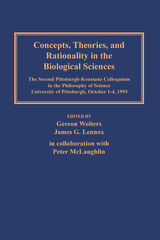
In October 1993, the University of Pittsburgh hosted the Second Pittsburgh-Konstanz Colloquium in the Philosophy of Science, with a focus on the rapidly growing field of philosophy of biology. An interdisciplinary group of philosophers and scientists came together to discuss the basic theories and concepts of biology and their connections with ethics, economics, and psychology. The colloquium organizers strove to create an event that would provide attendees with a wide overview on the current state of the philosophy of biology, with as many topics and views on these topics as possible. Those presentations are gathered here in a volume that offers the reader a varied and thorough survey of the field.
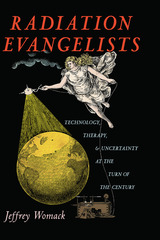
This book raises important questions about medical experimentation and the so-called Golden Rule of medical ethics, issues of safety and professional identity, and the temptation of a powerful therapeutic tool that also posed significant risks in its formative years. In this cautionary tale of technological medical progress, Jeffrey Womack reveals how practitioners and their patients accepted uncertainty as a condition of their therapy in an attempt to alleviate human suffering.
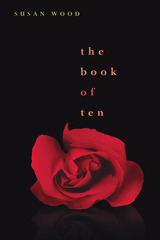
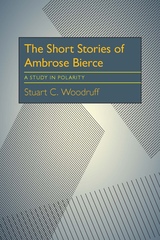
One of the most interesting figures to emerge at the turn of the twentieth century was Ambrose Bierce, whose acerbic columns in the San Francisco Examiner spread his fame as America’s most bitter cynic and misanthrope, and whose disappearance into Mexico surrounded his name with an aura of mystery.
Although best known during his lifetime for his journalism and always critical of his own writing—“the magnificent intention mocked by the actual achievement”—Bierce’s fiction endures, especially his short stories about the Civil War. Originally published in the 1890s and rediscovered in the 1920s, the Civil War stories are filled with unsparing descriptions of death and suffering, disillusionment and fatalism. They also show a concern for form and craftsmanship, a controlled irony, and an economy of detail that are distinctly modern.
In this pioneering study of Bierce’s stories, Stuart Woodruff examines the best and worst of Bierce’s fiction with clarity and excellent critical sense, and he traces the causes of Bierce’s success and failure as a writer, analyzing his inability to reconcile the extremes of temperament and belief that marked his life and give his stories their characteristic form.
Among the pieces discussed: “An Occurrence at Owl Creek Bridge,” “The Mocking-bird,” “One of the Missing,” “Chickamauga,” “Haïta the Shepherd,” “What I Saw at Shiloh,” and excerpts from The Devil’s Dictionary and Tales of Soldiers and Civilians.
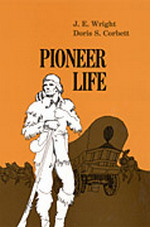
Pioneer Life in Western Pennsylvania was one of the original books sponsored by the University of Pittsburgh, the Historical Society of Western Pennsylvania, and the Buhl Foundation to mark the founding of the University of Pittsburgh Press. Authors Wright and Corbett describe the country the first settlers discovered, the homes and towns they built, the farm implements and household goods they used, the crops they grew and how their small, isolated communities laid the foundations for the cities and industries we know today

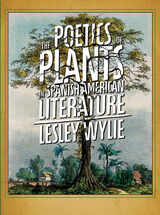
READERS
Browse our collection.
PUBLISHERS
See BiblioVault's publisher services.
STUDENT SERVICES
Files for college accessibility offices.
UChicago Accessibility Resources
home | accessibility | search | about | contact us
BiblioVault ® 2001 - 2024
The University of Chicago Press









